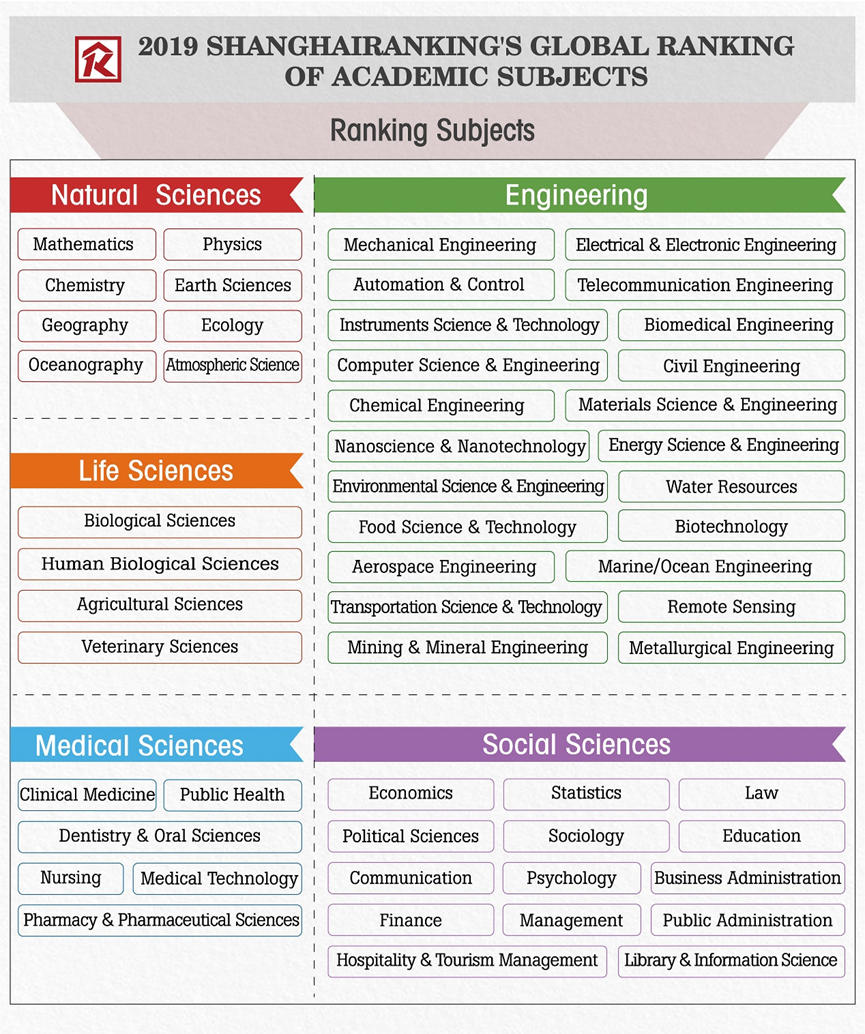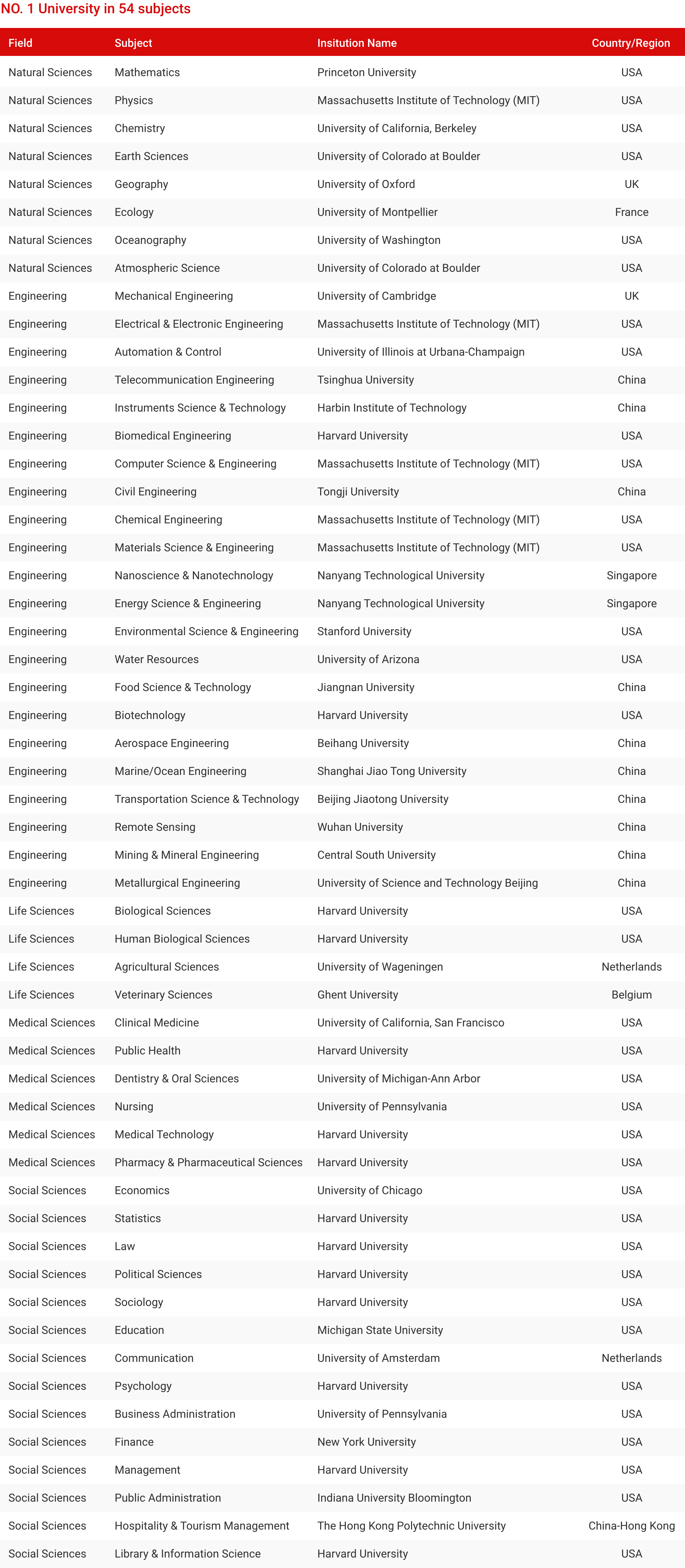ShanghaiRanking's Global Ranking of Academic Subjects 2019
Global Ranking of Academic Subjects (GRAS) 2019 is released today by ShanghaiRanking Consultancy. ShanghaiRanking began to publish Academic Ranking of World Universities (ARWU) by academic subjects since 2009. This release contains rankings of universities in 54 subjects across Natural Sciences, Engineering, Life Sciences, Medical Sciences, and Social Sciences. In total, more than 4000 universities were ranked.

The NO.1 universities ranked in each subject are shown below. Universities from the United States take top positions in 35 subjects, Chinese universities dominate 11 subjects. The best performing institution is Harvard, taking 14 crowns, 7 of which are from Social Sciences subjects, 3 from Medical Sciences, 2 from Life Sciences, and 2 from Engineering. MIT tops 5 subjects, 4 of which are engineering subjects. Other universities who top more than one subject rankings include University of Pennsylvania and University of Colorado at Boulder from the United States and Nanyang Technological University from Singapore.

More than 1700 universities from 86 countries and regions are published in this release and are presented on the league table for a total of 19191 times. Universities from the United States appear 4808 times, followed by Chinese universities (2001times) and universities from the United Kingdom (1554 times). University of Michigan-Ann Arbor, University of British Columbia, McGill University and the University of New South Wales are presented on the league table in 52 subjects, more than any other universities.
The subject rankings maintain the use of transparent methodology and third-party data. Ranking indicators include those measures of research productivity, research quality, extent of international collaboration, research with top quality, and the highest academic recognitions. The bibliometric data are from Web of Science and InCites database produced by Clarivate Analytics. Academic award is a featured indicator of ShanghaiRanking's global rankings. In GRAS 2019, 26 awards identified by professors from world's Top 100 universities through Academic Excellence Survey are used, which cover 23 ranked subjects. The Academic Excellence Survey also generates 134 top journals in 45 subjects, and 17 top academic conferences in Computer Science & Engineering. We would like to take this opportunity to thank those scholars who complete the survey for their significant contribution on building the criteria of academic excellence.

The detailed methodology and full results of ShanghaiRanking's Global Ranking of Academic Subjects 2019 can be viewed on our official website www.shanghairanking.com/rankings/gras/2019.
ShanghaiRanking Consultancy: ShanghaiRanking Consultancy is a fully independent organization dedicating to research on higher education intelligence and consultation. It has been the official publisher of the Academic Ranking of World Universities since 2009.